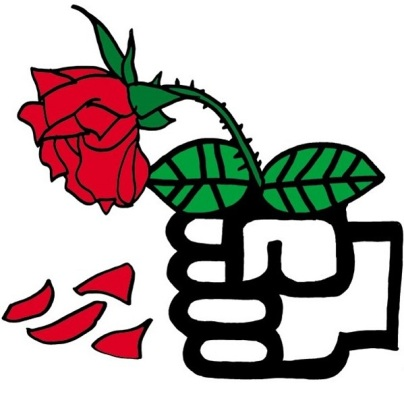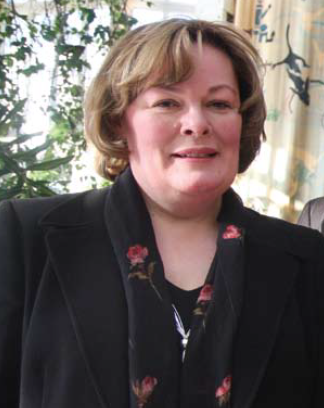

The "sick rose" of EPOnian "Social Democracy" finally wilted beyond recovery following delivery of ILOAT Judgment No. 4482 on 27 January 2022.
In the last part we saw how a former judge of the European Court of Human Rights, Sir Paul Mahoney, played a key role in suppressing the fundamental rights of EPO staff when he endorsed a majority opinion of the appeals committee dismissing a challenge to Battistelli's "Strike Regulations" in May 2019.
[PDF]).
[PDF]
[PDF] was yet another dubious proposal from Team Battistelli which was "unanimously approved" by the Administrative Council with only a handful of abstentions.

The official record shows that Battistelli's "Social Democracy" proposal was "unanimously approved" by the Council delegates in March 2014 with only a handful of abstentions.
"It took Mahoney’s appeals committee almost six years to issue an opinion on the legal challenges which EPO Staff had filed against Battistelli’s “Social Democracy”."However, the ILOAT took a significantly different view of the matter almost two years later, on 27 January 2022, when the Tribunal announced the judgments of its 133rd Session (held from 18 October to 23 November 2021).
Amongst these judgments was No. 4482 (local copy [PDF]) which ruled that Battistelli's "Social Democracy" violated the fundamental right of EPO staff to freedom of association:
The regime in place before decision CA/D 2/14 for the conduct of elections respected the right of staff to freely associate and the new regime did not. The reason given in its pleas by the EPO for the material changes within that organisation in 2014 presently being discussed, does not withstand scrutiny.

ILOAT Judgment 4482 is noteworthy because it was the second time that the Tribunal had ruled that a "reform" introduced by Team Battistelli had breached the fundamental right of freedom of association.
Clockwise from top left: Office President Benoît Battistelli, Principal Director Elodie Bergot, Vice-Presidents Željko Topić and Raimund Lutz.
"The judgment is also of significance because this time the Tribunal saw fit to strike down a decision of the Administrative Council."In the earlier judgments of the 132nd session concerning the Strike Regulations, the Tribunal had contented itself with quashing "Circular No. 347" which had been issued by Battistelli, and "which had the most immediate, adverse and far reaching effect on the complainants’ right to strike".
On that occasion, the Tribunal stopped short of revoking the Administrative Council decision that had supposedly empowered Battistelli to issue the disputed Circular.
According to the three-judge panel dealing with the case in Judgment 4430: (local copy [PDF])
The position is not so clear in relation to [Administrative Council decision] CA/D 5/13 [...] While the Tribunal can examine the lawfulness of provisions of a general decision ..., whether it has jurisdiction to set aside a provision of the Service Regulations is a significant legal question on which the Tribunal’s case law is unclear.
It should be resolved in an appropriate case by a plenary panel of the Tribunal constituted by seven judges, which is not presently possible.

How many Judges does it take to overturn a decision of the EPO's Administrative Council?
At the ILOAT, it seems that a plenary panel of seven judges is required...
Top row: Jacques Jamotte (no photo), Michael F. Moore (no photo) and Patrick Frydman.
Bottom row: Hugh A. Rawlins, Clément Gascon, Rosanna De Nicoltis and Hongyu Shen.
There is a consistent line of case law of the Tribunal which makes clear, in a variety of ways, that organisations should not interfere in the affairs of a staff association or union ... and the association or union must have the concomitant right to conduct its own affairs and regulate its own activities [...] It also includes the right to freely elect their own representatives. [...].
There are obvious reasons for this approach.
The role of staff associations or unions is to represent the interests of members primarily in dealing with their employing organisation on issues concerning the staff. Staff associations or unions should be able to do so unhindered or uninfluenced by the Administration of the employing organisation. Were it otherwise, the role would be compromised.
There are other less obvious reasons.
A staff association or union is likely to be more robust and thus more effective if the members perceive it to be independent and have confidence in it allied to a sense of ownership of it.
Any involvement by the employing organisation in its activities, including elections, would most likely affect that perception and diminish or dampen that confidence and sense of ownership.
While this latter reason should not be overstated, it nonetheless should be recognised [...]
"This case presents a situation where a remedy, which may intrude into the exercise of power by the Administrative Council, is appropriate to protect a fundamental right of a member of staff and, indeed, all members of staff which was a term of their appointment as officials of the EPO. The adoption of those parts of the new rules concerning elections by decision CA/D 2/14 entailed non-observance of that term of appointment.
There can be no doubt that freedom of association is a well-recognised and acknowledged universal right which all workers should enjoy.
It is recognised as a right by the Tribunal ... It is a right recognised in the 1998 ILO Declaration on Fundamental Principles and Rights at Work, Article 2(a), as an obligation for all ILO Member States arising from the very fact of their membership in the ILO.
Freedom of association is a right recognised by the 1966 International Covenant on Civil and Political Rights, Article 22, and also by the 1966 International Covenant on Economic, Social and Cultural Rights, Article 8.
The Administrative Council of the EPO has itself recognised the importance of human rights when formulating the rights and obligations of staff. In a decision made at its 55th meeting in December 1994, which is reproduced before the text of the Service Regulations [...]
"At the 168th meeting of the Administrative Council held on October 2021, Sonya Anne Brander was appointed as the new chair of the EPO's internal appeals committee."Unfortunately, there isn't much hope at this stage of finding out what Mahoney thinks about ILOAT Judgments Nos. 4430 and 4482 because he sailed off into the sunset towards the end of last year.
At the 168th meeting (warning: epo.org link) of the Administrative Council held on October 2021, Sonya Anne Brander was appointed as the new chair of the EPO's internal appeals committee.
Brander has dual UK and Canadian citizenship and is a graduate of Dalhousie University in Halifax, Nova Scotia. Prior to her current EPO appointment, she worked for the World Health Organization (WHO) as Chair of the Global Board of Appeal, which is the WHO's internal appeal body.

The new chair of the EPO's internal appeals committee, Sonya Brander.
"It remains to be seen whether or not Brander can make a more meaningful contribution to the restoration of justice and the rule of law at the EPO than her predecessor, Mahoney, who has been "weighed in the balance and found wanting"."The judgments of the 132nd and 133rd Sessions of the ILOAT confirm that Mahoney just wasn't up to the job when it came to "speaking truth to power".
He evidently saw it as his duty to tell the Administrative Council what it wanted to hear as opposed to what it needed to hear.
"In the final part of the present series, we shall see how Battistelli's inglorious departure from the EPO in 2018 did not resolve the organisation's governance crisis which continues to fester in the background as the 50th anniversary of the signing of the European Patent Convention approaches."His term of office as head of the EPO's internal appeals committee can only be judged as a miserable failure.
Above all else, it was irreparably blighted by his failure to take a principled stand against the "backsliding into totalitarianism" which took place at the EPO under Battistelli and his reluctance to confront the Administrative Council by taking it to task for its complicity in serious breaches of the fundamental rights of EPO Staff.
In the final part of the present series, we shall see how Battistelli's inglorious departure from the EPO in 2018 did not resolve the organisation's governance crisis which continues to fester in the background as the 50th anniversary of the signing of the European Patent Convention approaches. ⬆